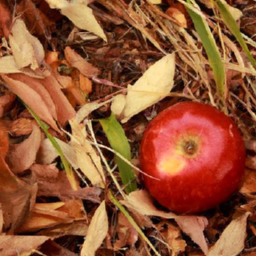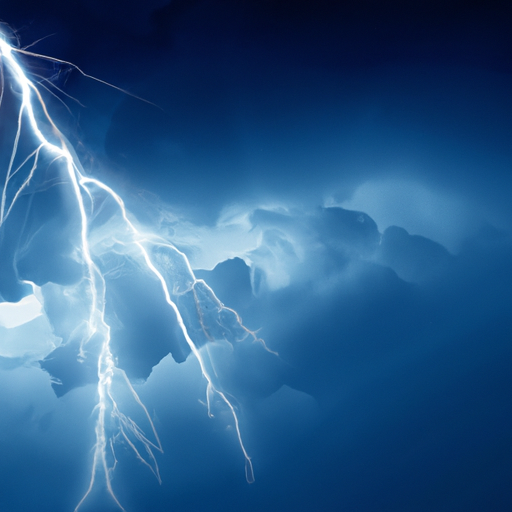Ready to welcome the beauty of autumn? Look no further than these 7 September poems that capture the essence of this transitional season. As September rolls in with its mild weather and changing foliage, it brings with it the promise of cozy moments and sweet apple harvests. From poets like Helen Hunt Jackson and John Updike to W. S. Merwin and Amy Lowell, these poetic gems will transport you to a world where September’s golden splendor shines through the words. So grab a cup of warm cider, curl up in your favorite blanket, and let these poems sweep you away into a world where nature’s beauty meets the magic of September.
September Poem #1
Title: September
Author: Helen Hunt Jackson
September is a month that holds a special place in many people’s hearts. It marks the transition from the warmth of summer to the cool embrace of autumn. The changing colors of the leaves, the crispness in the air, and the anticipation of the harvest season all contribute to the unique charm of September. Helen Hunt Jackson beautifully captures the essence of this month in her poem “September.”
In “September,” Jackson portrays the beauty of this time of year through vivid imagery. She paints a picture of golden-rod turning yellow, corn turning brown, and trees in apple orchards bending down with ripe fruit. The poem is filled with references to nature’s bounty, such as the blue fringes of the gentian curling in the sun, milkweed pods releasing their hidden silk, and the sedges flaunting their harvest in every meadow nook.
The poem also captures the fleeting nature of September, emphasizing that it is a time to be cherished. It speaks of dewy lanes in the morning, where the sweet odor of grapes rises, and roads fluttering with yellow butterflies at noon. With every lovely token of September, Jackson reminds us that this month brings us summer’s best of weather and autumn’s best of cheer.
However, Jackson also unveils a deeper layer of meaning in her poem. She suggests that there is a secret to September that goes beyond its external beauty. It is a secret that she remembers vividly and thrills her every time she recalls it. Though she does not reveal what this secret is, it adds a sense of mystery and intrigue to the poem, making September even more enchanting.
September Poem #2
Title: September
Author: John Updike
John Updike’s poem “September” takes a different approach to capturing the essence of this transitional month. While Helen Hunt Jackson focused on the visual elements of September, Updike tempers his imagery with a focus on the senses.
In “September,” Updike invites readers to experience the month through their senses. He describes the taste of apple peel on the breeze, the smells of ripe fruit and burning brush in the air, and the feel of old footballs and chalk in his hands. The poem is a delightful collection of sensory snapshots that creates a multi-dimensional experience of September.
Updike’s poem also touches on the nostalgia that is often associated with this time of year. He mentions the image of mothers cutting chrysanthemums and likens the polished days of September to plates washed clean with suds. These references evoke memories of past Septembers and the emotions tied to those memories. It is a reminder to savor the present moment and appreciate the beauty that September brings.
September Poem #3
Title: To the Light of September
Author: W. S. Merwin
W. S. Merwin’s poem “To the Light of September” takes a more introspective approach to the month. In this poem, September becomes a metaphor for a personal transformation or realization.
Merwin begins by describing September as still being summer, with its high familiar endless summer. Yet, he hints at the changing nature of the month, with a glint of bronze in the chill mornings and late yellow petals of the mullein fluttering on cracked ground. September becomes a symbol of transition, where the familiar starts to give way to something new.
The poem suggests that September is not only a physical presence but also an emotional one. Merwin explores the idea of someone being already here, yet appearing to be only a name. There is a sense of longing and a desire to capture the essence of September, to hold onto it for later. The poem speaks of flying with whispering birds and arriving with blue plums fallen through the night, emphasizing the ephemeral nature of September and the connection with nature.
Merwin’s poem is an evocative exploration of the complexities of September. It invites readers to reflect on the shifting seasons of life and the beauty that can be found in moments of transition.
September Poem #4
Title: September
Author: Annette Wynne
Annette Wynne’s poem “September” is a short, simple, and joyful celebration of the month. It captures the essence of September through its repetitive and rhythmic structure.
Wynne’s poem likens September to gold. It is golden in the garden, golden in the glen. The repetition of the word “golden” creates a sense of abundance and richness, mirroring the harvest season that September represents. The poem highlights the fleeting nature of September, as it proclaims that it is “going by.” However, it does so without sorrow or regret, instead embracing the beauty of the moment.
“September” is a poem that reminds us to appreciate the small pleasures and fleeting beauty of the month. It is a celebration of the golden hues that saturate the landscape and the joy that comes with the changing season.
September Poem #5
Title: September Tomatoes
Author: Karina Borowicz
Karina Borowicz’s poem “September Tomatoes” is a vivid depiction of the bittersweet nature of September. It beautifully captures the conflict between holding onto summer and embracing the inevitable arrival of autumn.
The poem begins with the whiskey stink of rot settling in the garden, as the dying tomato plants give way to fruit flies. Borowicz expresses a sense of hesitation and reluctance to let go of summer’s abundance. The speaker feels a sense of cruelty in pulling up the vines and destroying what has been carefully cultivated over the months.
Borowicz weaves in an intergenerational connection in the poem, referencing her great-grandmother’s songs tied to the season of flax pulling. This connection adds depth to the poem and emphasizes the cyclical nature of time and the changing of the seasons.
“September Tomatoes” is a poignant reminder of the impermanence of seasons and the need to embrace the present moment. It speaks to the emotional tug-of-war that often accompanies the transition from summer to autumn.
September Poem #6
Title: September
Author: L.M. Montgomery
L.M. Montgomery’s poem “September” paints a rich and vivid picture of the beauty of the month. It showcases the golden days of autumn and the vibrant colors that adorn the landscape.
The poem likens September to a ripe sheaf of golden days, gleaned by the year in autumn’s harvest ways. It evokes images of crimson poppies, late delights that atone for the flight of summer blooms and joys. Montgomery captures the splendor of September through her descriptive language and imagery.
“September” is a poem that celebrates the bounty of the season and the richness that comes with its arrival. It invites readers to revel in the golden moments of September and appreciate the vibrant tapestry of nature.
September Poem #7
Title: September, 1918
Author: Amy Lowell
Amy Lowell’s poem “September, 1918” takes a somber and reflective tone as it transports readers back to a specific moment in time. The poem captures a snapshot of September during the tumultuous year of 1918, marked by the backdrop of war.
Lowell’s poem showcases the contrast between the beauty of the afternoon and the broken world in which it exists. She describes the color of water falling through sunlight, glittering trees, and laughing houses. However, this idyllic scene is juxtaposed with the reality of war and the need to balance oneself upon a broken world.
“September, 1918” serves as a poignant reminder of the impermanence of peace and the need to cherish moments of tranquility amidst chaos. It captures the fragility of life and the longing for a time when there will be no war.
The Significance of September
September holds a special significance in the hearts of many. It is a month of transition, where the warmth of summer gradually gives way to the cool embrace of autumn. The changing colors of the leaves, the crispness in the air, and the anticipation of the harvest season all contribute to the unique charm of September.
Each of the seven poems discussed above offers a glimpse into the multifaceted nature of September. From Helen Hunt Jackson’s embrace of September’s visual beauty to W. S. Merwin’s exploration of its emotional significance, these poems capture the essence of the month in their own unique ways.
From John Updike’s focus on sensory experiences to Annette Wynne’s joyful celebration of September’s golden hues, these poems remind us of the small pleasures and fleeting moments that make this month a time to be cherished.
Karina Borowicz’s poignant reflection on holding onto summer amidst the inevitability of autumn and L.M. Montgomery’s vibrant portrayal of September’s bounty serve as reminders to appreciate the present moment and revel in the changing seasons.
Finally, Amy Lowell’s somber reflection on a specific September in history serves as a poignant reminder of the fragility of peace and the need to cherish moments of tranquility amidst chaos.
Themes in September Poems
Through these poems, several themes emerge that are inherent to the month of September. The themes of transition, nostalgia, impermanence, and the beauty of nature are prevalent throughout.
September is a month of transition, marked by the shifting from one season to another. The poets capture this transition in different ways, whether through visual imagery, sensory experiences, or emotional introspection. This theme serves as a reminder of the ever-changing nature of life and the need to adapt and embrace new beginnings.
Nostalgia is another prevalent theme in September poems. As summer comes to an end and the coolness of autumn sets in, memories of past Septembers resurface. The poets evoke a sense of longing and bittersweetness, encapsulating the nostalgia that often accompanies this time of year.
Impermanence is a recurring theme in September poems. The fleeting nature of September, with its changing colors and fading warmth, serves as a reminder of the transient beauty of life. It prompts reflection on the passage of time and the need to savor the present moment.
Lastly, the beauty of nature is a central theme in September poems. From the golden hues to the vibrant colors and the abundance of the harvest season, the poets celebrate the visual and sensory richness that September brings. It serves as a reminder to pause and appreciate the natural world around us.
Conclusion
September is a month that holds a special place in our hearts. Through the seven poems discussed, we have explored the various dimensions of this transitional time. From the visual beauty captured by Helen Hunt Jackson to the sensory experiences invoked by John Updike, each poem offers a unique perspective on the essence of September.
Whether embracing the nostalgia of the past, reflecting on the impermanence of seasons and life, or celebrating the beauty of nature, these poems invite us to pause, reflect, and appreciate the present moment. September is a month of transition, a time of beauty and change, and a reminder to cherish the fleeting moments that make this season so special.



